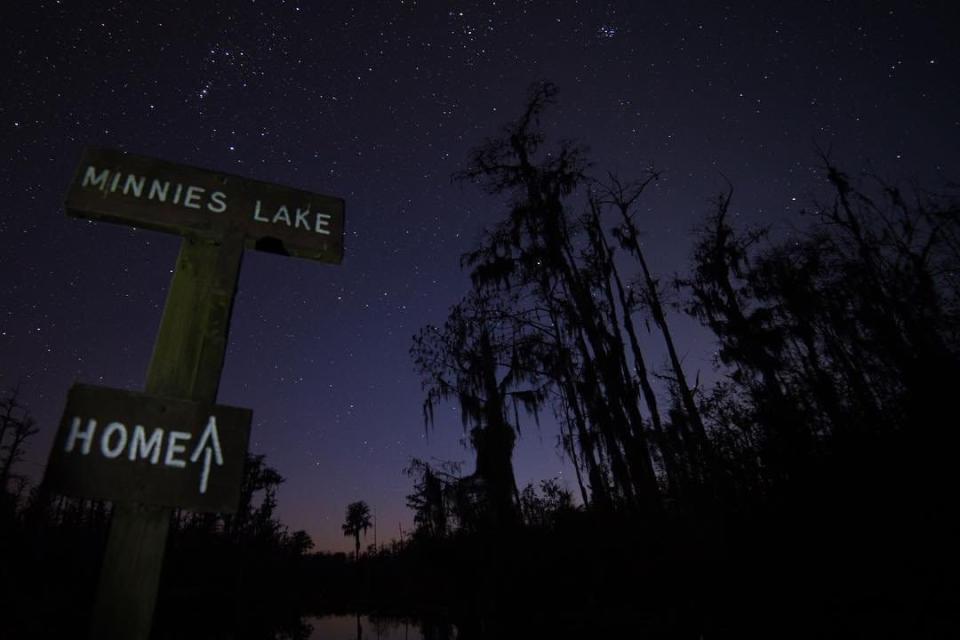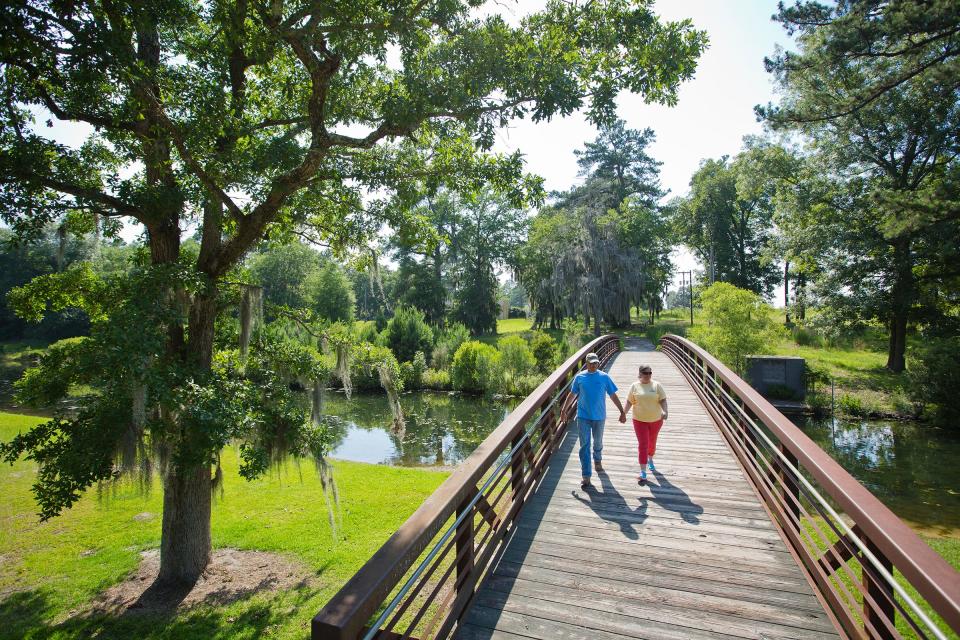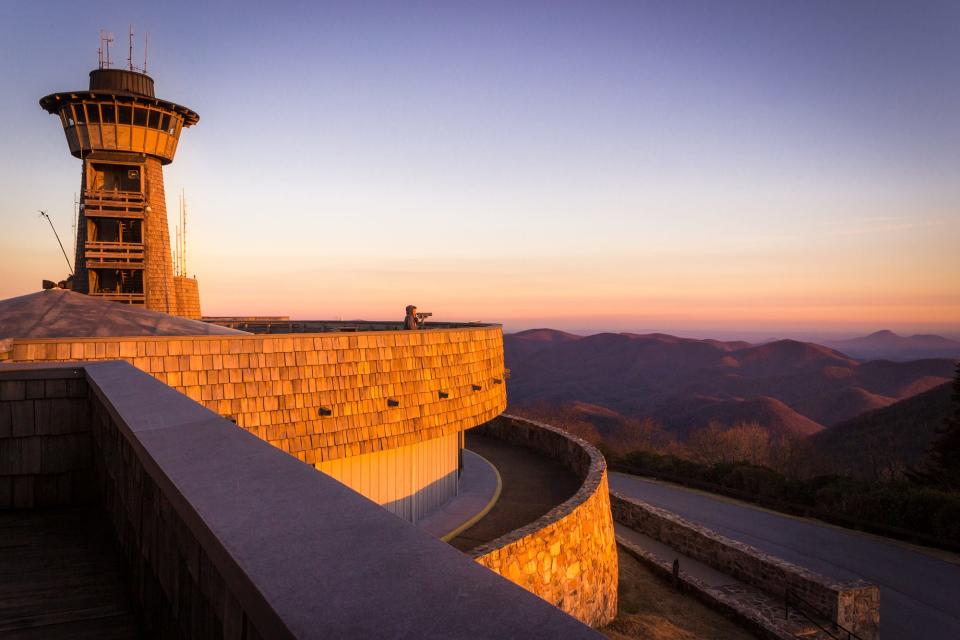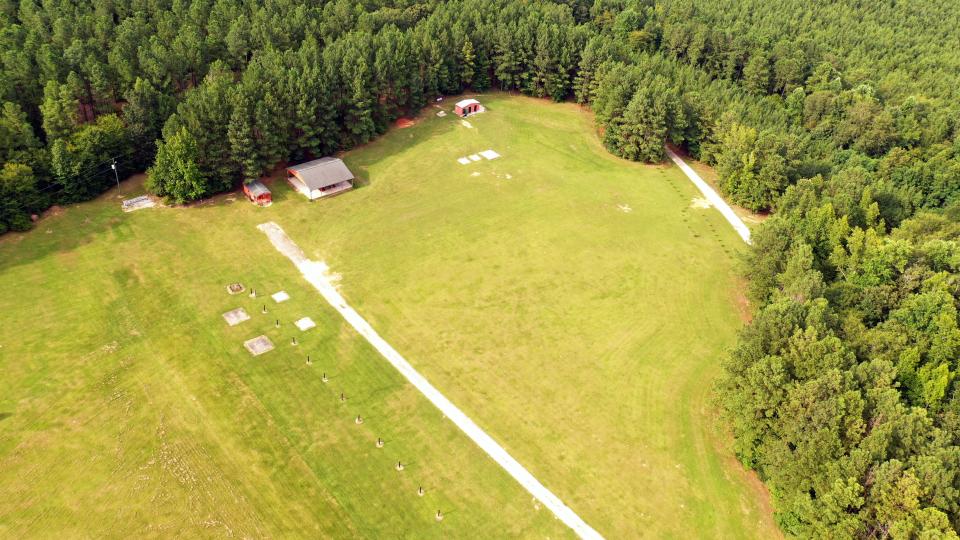5 great places in Georgia to get the best view of the blue supermoon
The Perseid meteor shower peaked in mid-August. A supermoon will return on Aug. 30. These are two celestial events that are sure to provide gorgeous photographs and awesome memories.
They are even more incredible to see in the right lighting and environment.
It isn't easy to find these kinds of local spots as light pollution from cities tends to wash away the sky's natural beauty. But Georgia has plenty of forests, mountains, state parks and other options across the state that provide IMAX-quality stargazing experiences for those willing to make the trip. Here are a few of the best locations:
Stephen C. Foster State Park

17515 GA-177, Fargo
Not only does Stephen C. Foster State Park serve as the primary refuge for the Okefenokee Swamp, it is also Georgia's only registered DarkSky Place.
It was given this special designation in 2016 by the International Dark Sky Places program which certifies communities, parks, and protected areas around the world that preserve and protect dark sites through responsible lighting policies and public education.
Harmful algal blooms: University of Georgia researcher monitors local waterways for harmful algal blooms
'We want to go where people want us': Georgia group seeks to create trail connecting Athens to Savannah
The public park spans 120 acres and is home to many different animals including black bears, deer, woodpeckers and about 12,000 alligators. Although there is no designated space for stargazing or nighttime photography, the parking lot across from the trading post offers a wide open view of the night sky. Guests are encouraged to follow the park's example and use limited light to not inhibit the stargazing experience.
The park is located about 65 miles east of Valdosta. Because it's located in a National Wildlife Refuge, gates lock at closing 10 p.m. and there is a $5 refuge fee. More than 60 camp sites are available on the grounds.
Magnolia Springs State Park

1053 Magnolia Springs Rd, Millen
Clear skies and clear natural springs are just two of the natural amenities of Magnolia Springs State Park.
Covering more than 1,000 acres, the park is currently home to millions of gallons of spring water and various animals. During the Civil War-era, it was also home to Camp Lawton, a Confederate military prison. Today, there is a museum on site that detail's the park's history.
Magnolia Springs is located about 35 miles north of Statesboro and was recommended as a good stargazing spot by Statesboro Astronomy Club Coordinator Bill McFadden.
He also reported that the park rangers recently got their own telescope and are using it for their own Perseids meteor shower event 9-10 p.m. Saturday. Space is limited and admission is $5 for ages 4 and up. Children 3 and younger get in free. To RSVP, call (478) 982-1660.
Brasstown Bald

Visitors Center: 2941 GA-180 Spur, Hiawassee
The closer you can get to the sky, the better the view. Georgia's highest point is Brasstown Bald in the Blue Ridge Mountains about 18 miles north of Helen.
The mountain rises more than 4,700 feet above sea level. This showcases some incredibly sites day and night. The summit can be reached from the parking lot by shuttle service or hiking the half-mile Summit Trail. There are other hiking trails available.
Complimenting the incredible height is a 360-degree observation deck at the Brasstown Bald Visitors Center, which is open every day 10 a.m. to 5 p.m. The center also provides an interactive museum and gift shop.
The parking lot is still open after hours and the center's lights are turned off to ensure they don't pollute the stars. For more information on rates, go to exploregeorgia.org.
Sandy Creek Park
400 Bob Holman Road, Athens
With more than 700 acres of land, Sandy Creek Park has more than enough space for watching the night sky.
Stars may reflect off the 260-acre Lake Chapman surrounding the park. The lake features more than 28,000 square feet of beach and a boat ramp. Most boats except for those with gasoline motors are allowed. Furry friends are also welcome at the public dog park and five private dog parks. There are also more than 16 trails, a disc golf course and basketball courts.
Maurice Snook of the Athens Astronomical Association said it's great to bring a blanket out and enjoy the sights. He also said they plan to meet up for the Perseids meteor shower Saturday night with a telescope.
Admission is $2 per person for ages 4-64 and is free otherwise. For more information, go to accgov.com.
Deerlick Astronomy Village

383 Constellation Lane, Crawfordville
There are several parks, hills and mountain tops that allows for all kinds of outdoor fun, including stargazing. But there is one recreational site that was built exclusively for astronomy from the ground up.
Deerlijk Astronomy Village was developed by a group of amateur astronomers from Atlanta with 96 acres of remote land in a dark region about 60 miles west of Augusta. Grier's Field offers plenty of room to walk around and look up. Despite its seclusion, there are working restrooms and free Wi-Fi. While some visit may visit for special occasions, individual lots are sold in the village for astronomers to build their homes or personal observatories.
Love Island USA: Here's what to know about Mike Stark, the new "Love Islander" with Augusta ties
U.S. Capitol insurrection: Georgia lawyer sentenced to 18 months for involvement in Jan. 6 U.S. Capitol insurrection
John White of the Astronomy Club of Augusta said the village provides, probably, the best dark sky place in this part of Georgia.
Admission is restricted to those with memberships, which start at $25. But once paid, the village is available 24/7. The village also hosts night out for star parties, school and scout outings. In addition, there are strict rules on the grounds such as not being allowed to drive with headlights after night falls and cooking being reserved for the pavilion. For more information on the rules and membership levels is available at deerlickgroup.com.
Stargazing, moon-viewing tips from astronomers
Multiple astronomers the Augusta Chronicle spoke to advised amateur or first-time stargazers to purchase a high-quality set of binoculars over a telescope. They are more versatile and allow users to watch the sky with both eyes. White recommended purchasing from a company that specializes in binoculars rather than just anything off the shelf of your local camping store.
There are also several mobile apps that use your phone's camera to identify constellations and other celestial objects. The highest rated iOS one is "Night Sky" and the most popular one on Google Play is "Stellarium Mobile."
This article originally appeared on Augusta Chronicle: Best place to see blue supermoon in August 2023: 5 options in Georgia

